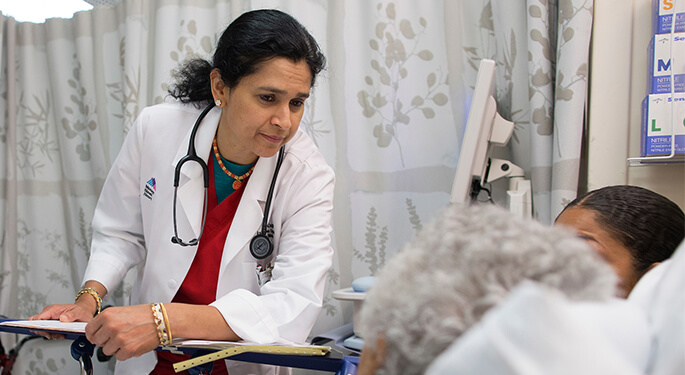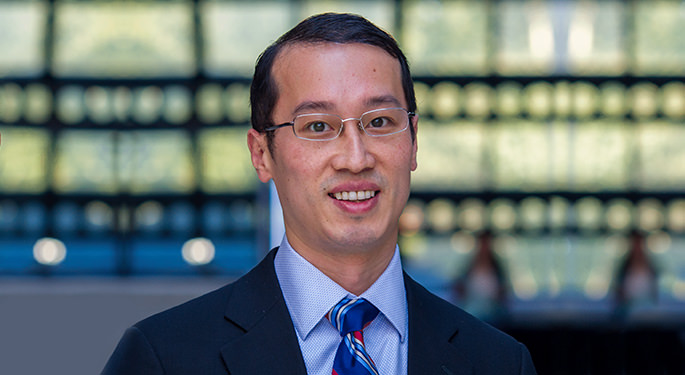Structural Heart Disease


Structural heart disease refers to a defect in the heart’s valves, walls, or chambers. The condition can be present at birth (congenital) or can develop over time. Your chances of developing structural heart disease increase if you have high blood pressure, atherosclerosis, are taking certain medications, or have had a previous heart attack, rheumatic fever, endocarditis, cardiomyopathy, or certain other infections.
The most common types of structural heart disease are:
- Aortic valve disease
- Congenital heart diseases such as atrial septal defect and ventricular septal defect
- Hypertrophic cardiomyopathy
- Mitral valve disease
- Tricuspid and pulmonic valve disease
Diagnosis
Most of our structural heart disease patients come to us through a general cardiologist, an interventional cardiologist, or a cardiovascular surgeon. We find that early diagnosis is critical to successful treatment, so we are thorough in our investigations. We start by conducting a complete physical exam followed by additional tests that may include the following:
Treatment Options
For years, structural heart diseases were treated with open heart surgery, but now less invasive approaches (called transcatheter valve replacements, percutaneous valve replacements, or structural heart procedures), are available for patients at a medium to high risk for open heart surgery. There are a number of advantages to minimally invasive procedures including shorter procedure times, little to no scarring, less blood loss, decreased pain, shorter hospital stays, faster recovery, and fewer complications. If you are a good candidate for our structural heart program, your surgeon will work together with an interventionalist and a cardiologist to determine the most appropriate course of treatment.
We use several types of minimally invasive procedures to treat structural heart disease, depending on the specific situation. Treatments include: Transcatheter aortic valve replacement (TAVR), alcohol septal ablation, mitral clip, and amplatzer septal occluder.
Cardiac catheterizations
A cardiac catheterization is a minimally invasive procedure that enables us to evaluate how your heart is functioning, including blood flow and valve functions.
Learn more about cardiac catheterizations
Mitral Clip
A Mitral clip is a device designed to treat a hole in the heart. The MitraClip is a small metal (cobalt chromium) clip covered with polyester fabric. We implant the clip on your mitral valve by inserting it through a catheter. The clip acts like a paper clip, holding together a small area of the valve. Your valve will continue to open and close, but the clip will keep the blood from flowing in the wrong direction. You will not feel the clip inside you.
Most patients stay in the hospital for two or three days after the procedure and need no special help after they leave. We may give you blood-thinning medication to help reduce the possibility of a clot after the procedure. We will give you an Implant Identification Card that lists the details of your implant and has contact information in case of an emergency.
Transcatheter aortic valve replacements & Transcatheter aortic valve implantations
Transcatheter aortic valve replacement (TAVR) and implantations (TAVI) are minimally invasive techniques that we use to treat coronary artery disease.
Learn more about Transcatheter aortic valve replacements and implantations
Transcatheter mitral valve replacement
Transcatheter mitral valve replacement (TMVR)treats mitral valve disease. Weenter the blood vessels through the groin area or chest. We pass the tube up through the blood vessels to the right side of the heart, then through the septum to the left side of the heart using a technique called trans-septal puncture. Once we have the catheter positioned, we transport the valve through the tube and position it inside the frame of the failing valve. The procedure typically takes two to three hours.
After this procedure, we monitor you for a day or two, paying particular attention to any arrhythmias and changes in blood results. We do a comprehensive echocardiogram to make sure the valve is working and rule out the possibility of any complications.
Learn more about Transcatheter mitral valve replacements
Alcohol septal ablation
Alcohol septal ablationis a technique we use to treathypertrophic obstructive cardiomyopathy, a condition where the heart muscle expands and blocks blood flow.
Learn more about alcohol septal ablation
Amplatzer septal occluder
An Amplatzer septal occluder is a cardiac implant device used in both children and adults, offers a safe and effective minimally invasive alternative to treat atrial septal defect (a hole in the wall that separates the two upper heart chambers). This device is still in clinical trials and The Mount Sinai Hospital is one of only 20 centers in the United States currently using it. This device is small enough that we can use it with children as young as age three, thus reducing the risks of open heart surgery and decreasing chances of complications later on. After we implant the device through a thin tube inserted into a vein, it expands to fill the heart defect, thus closing the atrial septal defect.
Learn more about amplatzer septal occluders
Clinical Trials
The Mount Sinai Fuster Heart Hospital team conducts clinical trials (medical research studies) to improve how we prevent, diagnose, and treat structural heart diseases. These trials help advance medical treatment while giving participating patients an opportunity to receive novel therapies that otherwise would not currently be available.
The following clinical trials in structural heart disease are available at Mount Sinai:
Minimally invasive beating-heart mitral valve repair
Principal investigator: Dr. David Adams
Contact: Michael Fusilero at michael.fusilero@mountsinai.org or 212-242-9913
Transcatheter mitral valve replacement
Principal investigator: Dr. David Adams
Contact: Michael Fusilero at michael.fusilero@mountsinai.org or 212-242-9913
Transcatheter tricuspid valve repair
Principal investigator: Dr. Gilbert Tang
Contact: Michael Fusilero at michael.fusilero@mountsinai.org or 212-242-9913
Low risk transcatheter aortic valve replacement
Principal investigators: Dr. Samin Sharma, Dr. David Adams
Contact: Nicole Saint Vrestil at nichole.saintvrestil@mountsinai.org or 212-241-9687